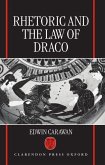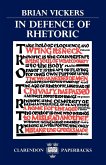"In this remarkable analysis, William Sewell restores to Sieyes's great text a complexity that has too often been denied it. Drawing on contemporary political theory and political economy as well as historical and biographical material, Sewell masterfully demonstrates that what matters about Sieyes's text is not only its acknowledged influence on the events of the French Revolution, but also the ways in which contemporaries misunderstood or rejected its deeper, prophetic vision."--Sarah Maza, Northwestern University
Hinweis: Dieser Artikel kann nur an eine deutsche Lieferadresse ausgeliefert werden.
Hinweis: Dieser Artikel kann nur an eine deutsche Lieferadresse ausgeliefert werden.








